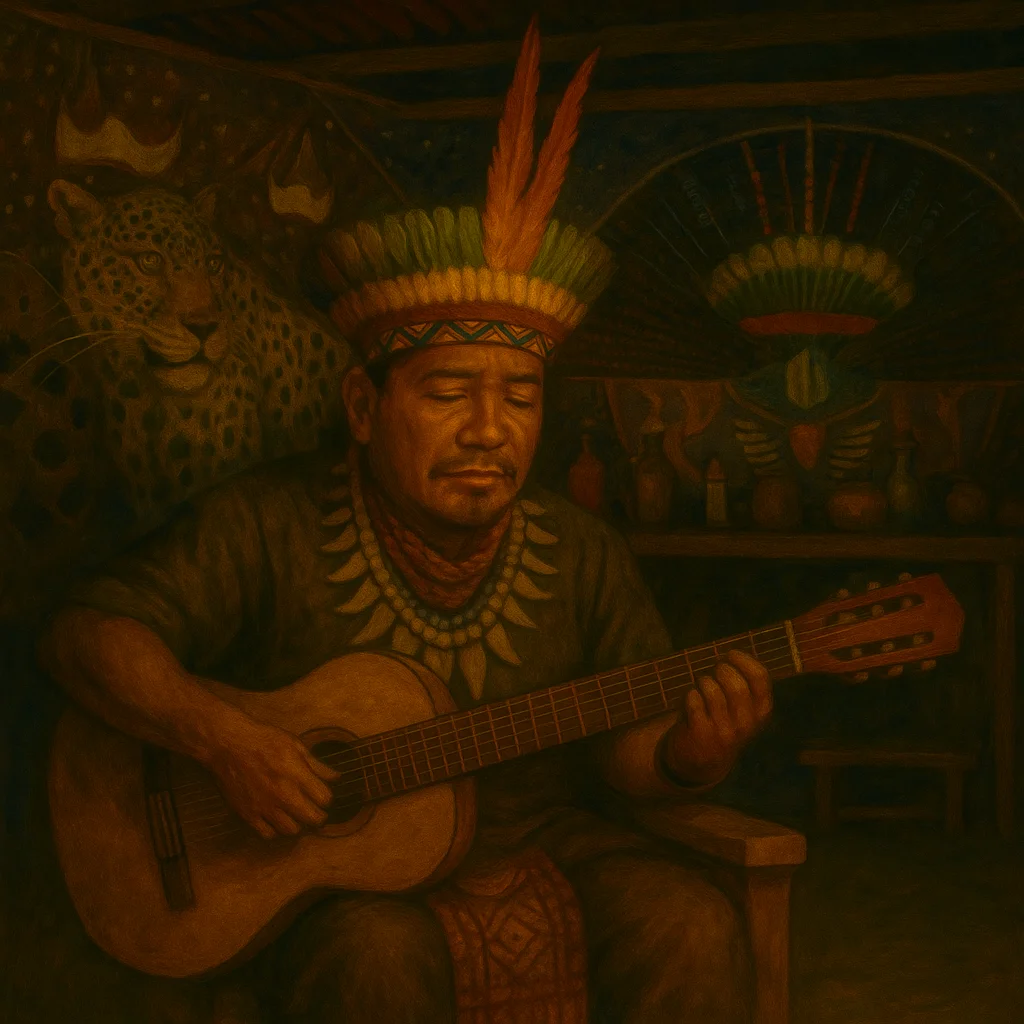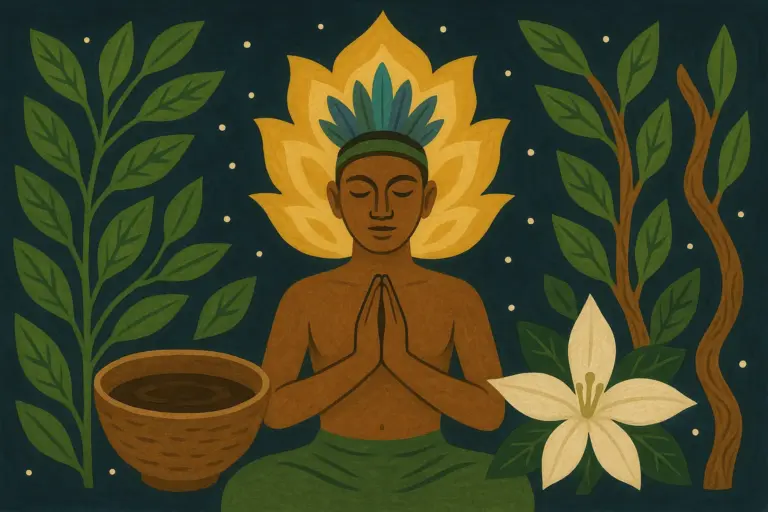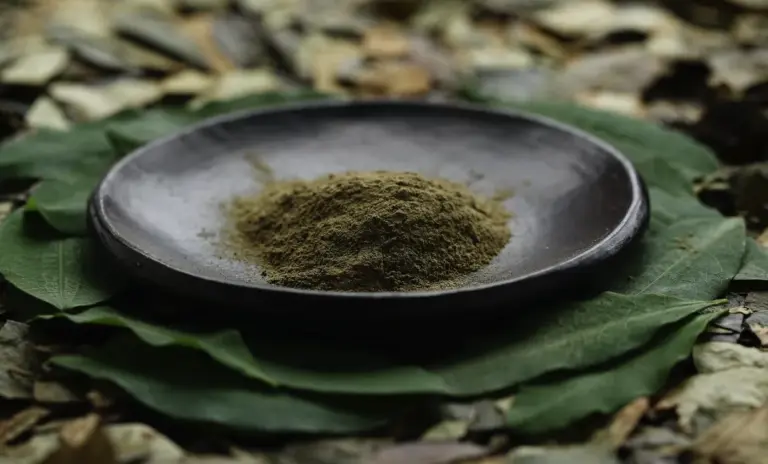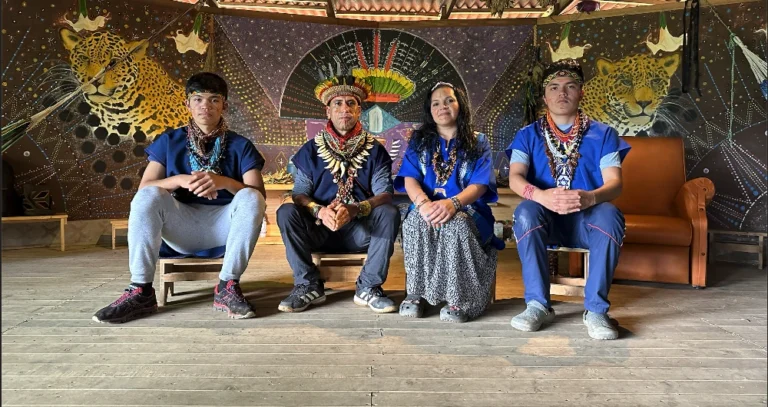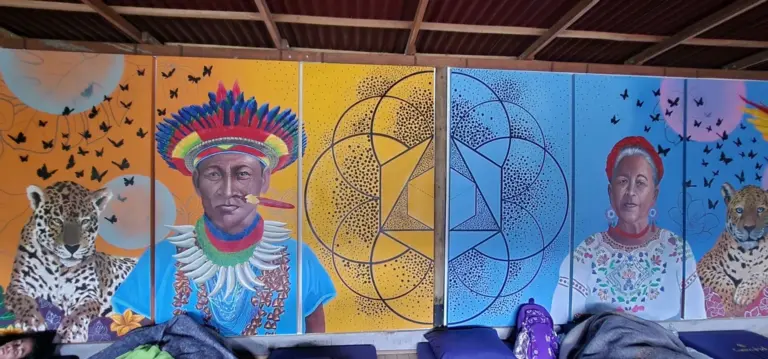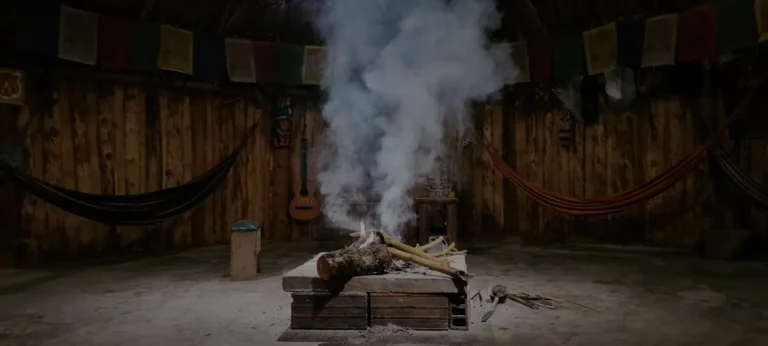Ayahuasca Music and Icaros: How Sacred Songs Shape the Healing Journey
In every authentic ayahuasca ceremony, the music is not background — it is the lifeline. The sacred songs known as icaros are more than melodies; they are threads that weave the medicine into your heart, mind, and spirit. In this article, we explore the role of ayahuasca music, its cultural roots, and how it guides participants through the depths of the healing journey.
The Cultural and Spiritual Roots of Ayahuasca Music
The tradition of singing to the medicine stretches back through countless generations of Amazonian healers. These songs are not chosen for beauty alone — they are received in moments of deep connection with yagé and the plant spirits. Each icaro is a prayer, a tool, and an energetic map, handed down from elders or revealed directly through years of apprenticeship.
Within the maloca, the icaro is more than a sound; it is a living presence. Healers use specific melodies and rhythms to open, guide, and close different stages of the ceremony. Some songs are for cleansing and protection, others for calling visions, grounding emotions, or bringing the group back together after a challenging passage. This careful use of music reflects the same values that guide our work at Camino al Sol — integrity, respect for tradition, and safety.
For a deeper understanding of ceremonial context, see our Ayahuasca Safety Guide.
What to Expect from Music in Ceremony
- Preparation: Before the ceremony begins, musicians may tune instruments and softly play to help you settle into the space.
- Guidance: During the ceremony, the icaro can feel like a hand reaching through the darkness — it may lead you toward an insight, help you release an emotion, or remind you of your strength.
- Energetic Shifts: Songs can lift the room’s energy or create stillness for introspection. The shaman chooses each one intentionally.
- Closing: The final songs often carry a tone of gratitude, sealing the work of the night and preparing you to re-enter daily life.
Music is not a performance for entertainment; it is medicine. Just as yagé works within the body, the icaros work within the space between people, aligning the group’s energy and guiding the ceremony toward a safe conclusion.
A Story from the Circle
One night, during a particularly heavy passage in ceremony, a guest shared later that they felt as though they were drowning in waves of emotion. Then, a single voice began to sing — a gentle icaro accompanied by the soft strum of a guitar. The participant said it was as if the song reached down into the chaos and pulled them into the surface light. No visions of angels, no grand promises — just the profound truth that they could breathe again. This is the quiet, steady power of music in the healing process.
Carrying the Songs into Daily Life
After ceremony, many participants find that certain melodies stay with them. You may wake with a tune in your mind or hum an icaro during moments of stress. These songs can serve as anchors, reminders of the insights you gained and the peace you touched. Listening to recorded icaros — or even learning to sing one yourself — can help bring the ceremony’s clarity back into daily life. In this way, the real ceremony becomes life itself.
If you wish to deepen your connection with this tradition, attending an Authentic Ayahuasca Retreat in Colombia can offer direct experience of how music and medicine work hand in hand.
FAQ
Is ayahuasca safe in Colombia?
When held by experienced facilitators who respect tradition and screen participants for medical conditions, ayahuasca ceremonies in Colombia can be safe. At Camino al Sol, music is part of this safety — guiding the group, calming emotions, and supporting transitions throughout the night.
How to prepare for an ayahuasca music experience?
Preparation is similar to any ceremony: follow the prescribed diet, avoid alcohol and certain medications, and rest well before arrival. You do not need musical training — the songs will meet you where you are.
Can I record the music during ceremony?
Out of respect for the sacred space and other participants, recording is not permitted. However, some retreats share recordings of public performances or practice sessions outside the ceremony.
Will I understand the words of the icaros?
Often, no — many icaros are sung in indigenous languages or in Spanish. The healing comes not from intellectual meaning but from the vibration, rhythm, and intention carried in the song.
Experience the Healing Power of Ayahuasca Music
If the idea of being guided by sacred song resonates with you, we invite you to join us in Colombia. In the circle, the music is not a performance — it is a compass, pointing you toward your own truth. Learn more about our retreats here.

